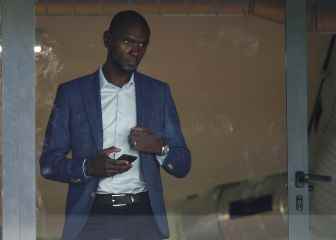As reported The confidential this Monday, “the National Institute of Toxicology (belonging to the Ministry of Justice) has found no evidence that the former FC Barcelona player Éric Abidal, and the alleged cousin who donated part of his liver to him in 2012, Gerard Armand, are really family”. The revelation entangles the case investigated by the Barcelona Court and in which Eric Abidal himself, Sandro Rosell, former president of Barça; and Juanjo Castillo, former Barça director.
According The confidential“the finding underpins the evidence of guilt against those involved” because “in the summary there are four telephone conversations between Rosell and Castillo in which both admit, without knowing that they were being recorded by the Civil Guard and the National Police, that they bought a illegal liver for Abidal and that they invented that the donor was his cousin”.
The confidential he recalls that “after the wiretapping spread, those under investigation already admitted that, in reality, Abidal and the donor were not first cousins, but only had a grandmother in common.” The issue is that Toxicology “has now determined, after analyzing biological samples from both, that it cannot even be proven that they are family (…). The family relationship is key to authorizing an ‘inter vivos’ transplant because it presupposes that there is a affective motivation to give altruistically to another person a part of an organ”.
The same media outlet recalls that, “in addition to organ trafficking, the Penal Code expressly punishes in article 177 bis, with between five and eight years in prison, trafficking in persons with the aim of” extracting their bodily organs “. For this It is not essential that a payment has been made, it is enough that there is a “deception” or the beneficiary abuses “a situation of superiority, or of need or vulnerability of the national or foreign victim.”
